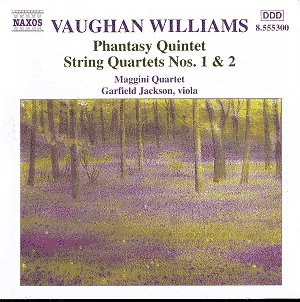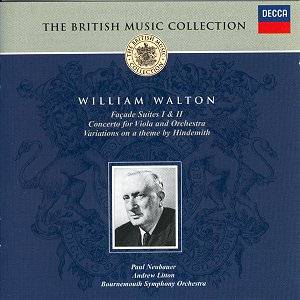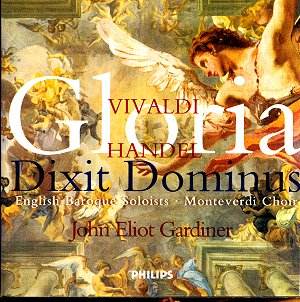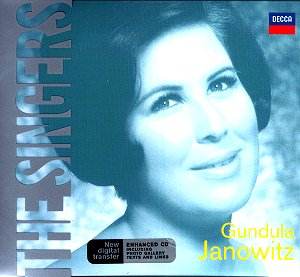 Composer: Ralph Vaughan Williams
Composer: Ralph Vaughan Williams
Works: Phantasy Quintet (1912), String Quartet No. 1 in G minor (1908, rev. 1921), String Quartet No. 2 in A minor (1942-3)
Performers: Maggini Quartet; Garfield Jackson, viola
Recording: Potton Hall, Suffolk, UK, June 13-15, 2000
Label: NAXOS
Ralph Vaughan Williams occupies a distinctive position in the English musical landscape, often associated with a pastoral sensibility that evokes the bucolic charm of his homeland. However, as evidenced in this Naxos release featuring the Maggini Quartet, his chamber music offers a more multifaceted view of his artistic evolution. The three works presented here—spanning from early to late in his career—demonstrate a range of emotional and stylistic expression, underscoring Vaughan Williams’s ability to intertwine folk influences with broader European modernism.
The Phantasy Quintet opens the disc, showcasing Vaughan Williams’s early engagement with the string quartet form, influenced by the likes of Ravel. The inclusion of Garfield Jackson on viola enriches the texture and allows for a sonorous dialogue between the instruments. The Maggini Quartet brings a palpable intensity to this performance, their technical prowess matched by an evident commitment to the music’s emotional core. The clarity of articulation in the opening movement draws attention to the work’s bold, angular motifs, while the ensemble’s dynamic control allows the more lyrical passages to breathe organically. This interplay of tension and release is particularly striking, reminding listeners of the complex emotional landscape that Vaughan Williams navigated throughout his life.
The String Quartet No. 1 follows, a piece that showcases Vaughan Williams’s early Romantic tendencies, with a marked shift in tonal language from the Phantasy. The Maggini Quartet’s interpretation of the first movement, with its rhythmic precision and dramatic contrasts, serves to heighten the sense of a journey through varied emotional landscapes. The second movement, with its pastoral theme, contrasts starkly with the preceding drama, revealing the composer’s knack for juxtaposition. Here, the ensemble’s phrasing is particularly commendable, allowing the melody to unfold with a sense of natural inevitability, reminiscent of the English countryside.
The disc culminates in the String Quartet No. 2, a wartime reflection that portrays a more somber and introspective Vaughan Williams. The Maggini Quartet navigates the complex emotional terrain of this work with a nuanced understanding, particularly in the Romanza, where the balance between stridency and serenity is masterfully executed. The performance’s emotional depth is complemented by the recording quality, which captures the rich tonal colors and subtle dynamics of the ensemble. The sound engineering is exemplary, placing the listener in an intimate setting that enhances the chamber music experience.
While these works may not ascend to the highest echelons of the quartet repertoire, the Maggini Quartet’s interpretation brings forth their inherent beauty and significance. The ensemble’s immaculate execution and the thoughtful programming of lesser-known works present Vaughan Williams in a new light, allowing for a deeper appreciation of his contributions to chamber music. This recording serves as an essential addition to the catalog for both devoted fans of Vaughan Williams and those seeking to explore the breadth of his musical dialogue. The Naxos label continues to excel in bringing such vital interpretations to the fore, ensuring that these works resonate with both historical context and contemporary relevance.



